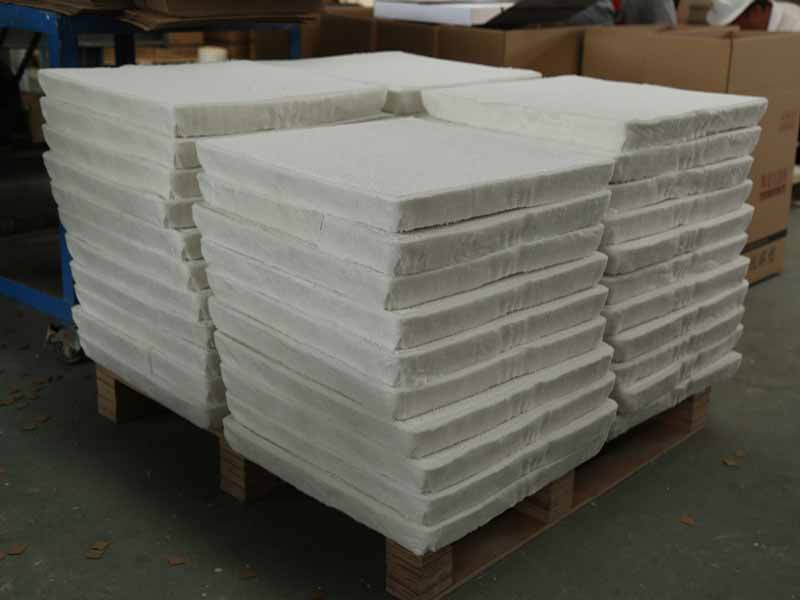The ceramic foam filters for foundries have been found to be particularly useful in filtering molten metal, especially molten aluminum. The high-temperature resistant characteristics of the filter are particularly useful under the severe use conditions encountered in the filtration of molten metal. Furthermore, the composition of the ceramic filter has been found no pollution to the metal.
The ceramic filters for foundries are a low-cost material that may be conveniently used on a disposable basis. The molten metal is poured through the ceramic foam material at a rate of from 5 to 500 and preferably 30 to 100 cubic inches per square inch of filter area per minute and entrained solids are thereby removed from the molten metal.
Ceramic foam filter is an open-cell, flexible organic foam material, provided having a plurality of interconnected voids surrounded by a web of foam material. The aqueous slurry described above is prepared and the foam material is impregnated therewith so that the web is coated therewith and the voids are substantially filled therewith. The impregnated material is then compressed to expel from 20 to 75% of the slurry while leaving the web coated therewith. The compression is released so that the web remains coated with the slurry and the material is dried. The dried material is then heated to first burn out the flexible organic foam and then sinter the ceramic coating, thereby providing a fused ceramic foam having a plurality of interconnected voids surrounded by a web of bonded or fused ceramic in the configuration of the flexible foam.
The principal component of the ceramic foam material is Al2 O3. Al2 O3 is particularly desirable for use as a ceramic filter since it is not attacked by molten aluminum or molten copper, whereas, silica is attacked by these materials. Furthermore, the alumina has reasonable strength to stand up to chemical attack and structural and mechanical strength to stand up to the particular elevated temperature conditions.

